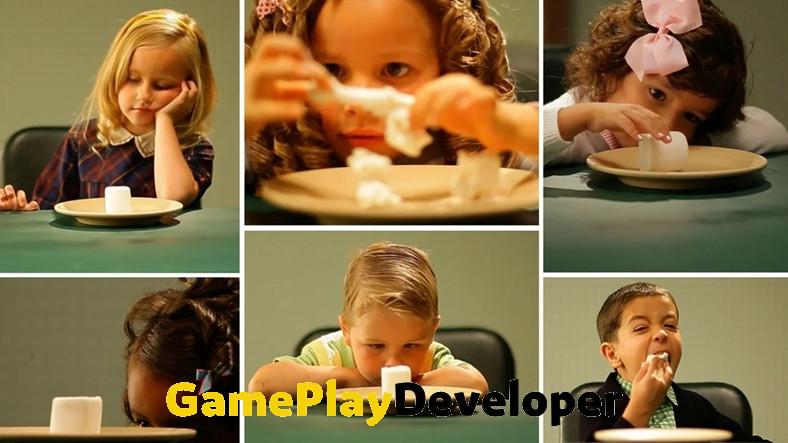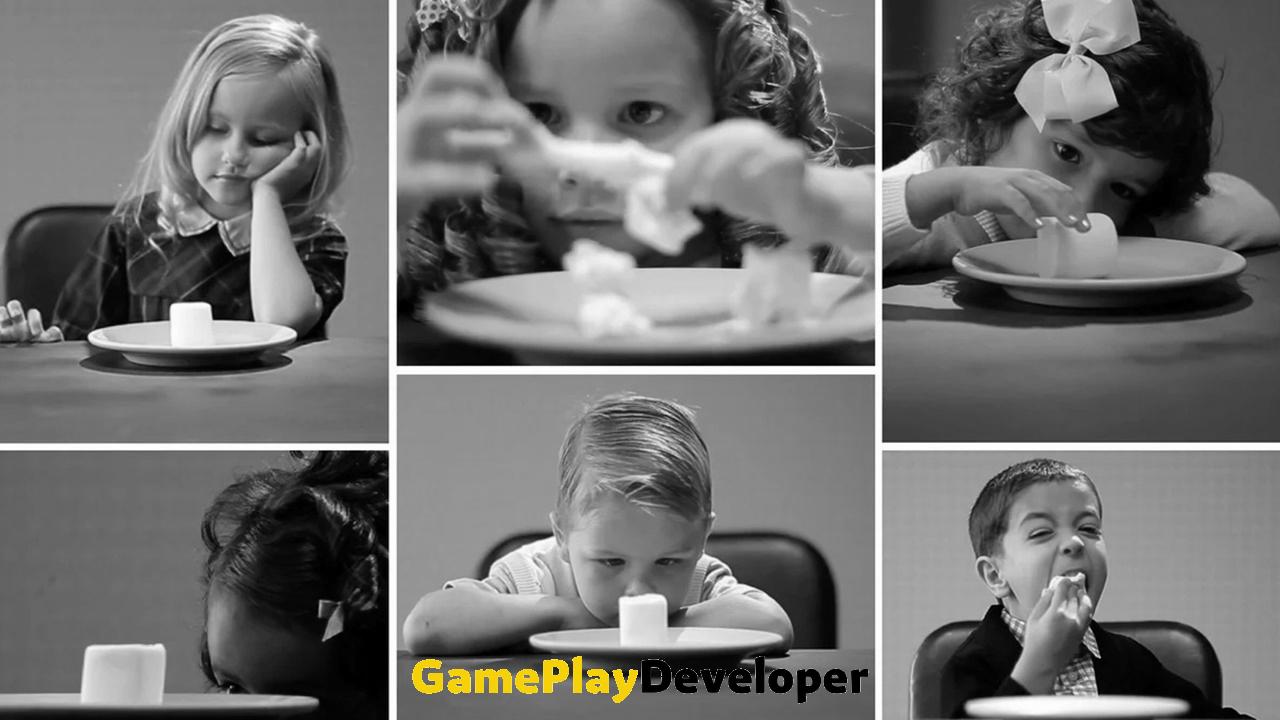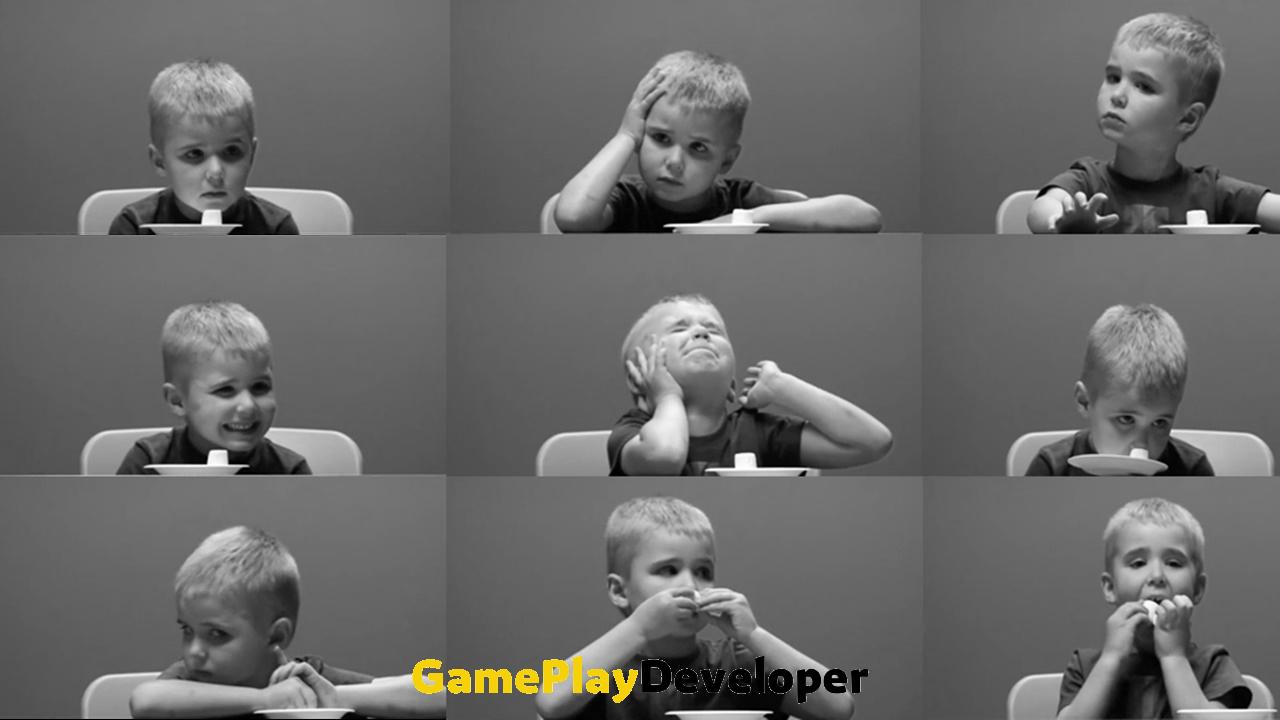Marshmallow Experiment on Children
Researchers conditionally awardsWhen presented, he wondered if they would delay gratification instead of quickly reaping the reward. In 1970 …

Researchers conditionally awardsWhen presented, he wondered if they would delay gratification instead of quickly reaping the reward.
In 1970, this experiment with preschool-aged children wanted to measure the level or lack of cognitive ability of children to delay pleasure. Come then, this is tryLet’s look at the details together.
At the first stage, the experiment was started with the participant cluster consisting of 56 children. The researchers first played with the children a little to get them used to the experiment.

Distributing the children into five clusters from A to E, the researchers took each of them to a different room. Children in sets A, B, and C a marshmallowgiven.
What happened next was interesting. The children were told that the specialists would leave the rooms for a while and then return. It was stated that if they waited for them, they would be given another marshmallow in front of them. But psychologists can teach children if they want to. that they can eat the candy right away also spoke. But those who ate quickly were not entitled to a second nap.
The waiting time was 15 minutes. So what happened after this deadline passed?

Among the children in the A, B and C clusters, those who show sufficient patience, two marshmallows could eat. Children who did not wait and gave up did not get a second nap, as stated at the beginning. The children in the D and E clusters were not offered anything. After the 15-minute grace period, all children were allowed to play with the toys. Then, while the children were playing with the toys, they were asked to think of fun things. This could be things like singing music and thinking about different kinds of games.
After observing for a while, the experts some children deemed it appropriate to exclude it from the experiment. Because some of them did not understand the directions of the experts, that is, they did not follow the instructions. Therefore, it was decided that it was appropriate to continue the study with 50 children.
Then the second part of the experiment, which was very surprising, was started.

It was stated that experts will leave the room, as in the beginning, for 50 children. Then the children were told whether they ring the bell or not. 15 minutes After waiting, they were told that they could play with the toys. It must be really hard for them to put natural little children in a room full of toys and say “you can play with them for a while”. On the other hand, the results revealed that children who were initially included in clusters A, B, and C and waited for two sweets for 15 minutes were more patient than other clusters.
In another step of the experiment, the children were divided into three groups and given marshmallows again. But during this waiting period, each group was asked to think differently.

Group A was told to think about fun things, group B about sad things, and group C to think of sweet food soon. Logic was perfect again. If they waited for 15 minutes without calling the experts, the number of rewards they would get increased, if they did not wait, they could not earn anything extra. As a result in group AIt was seen that the children waited more than the other clusters.
Mischel and his group aim to leave the instant pleasure of children for later; He suggested that they could learn by ignoring the source of pleasure or by thinking about positive things independent of betting. In fact, delaying the feeling of obtaining instant satisfaction is also of this type, according to experts. to cognitive activities was attached. In other words, it was necessary to adopt the ideology of “either you will avoid the object of desire or suppress the desire for it”.

In other experiments on this, children who internalize the idea of gaining long-term gains without feeling a moment of pleasure have been shown to be patient. they have succeededdetected.
In another study led by psychologist Tyler Watts, a group of 900 children was examined.

Each of these children had a different ethnic origin, socioeconomic status and parental structure. In this study, children socioeconomic status,The relationship with the behavior of delaying gratification was examined.
The results were quite striking. You ask why? Because experts said that positive results cannot always be obtained from delayed gratification behavior. In other words, we can say that this was the exact opposite of what Mischel et al. Watts’ team said they could wait to get a second prize of marshmallows. social and economicdefined it as a situation determined by its infrastructure.
Simply put, we can say that the importance of the family factor in children’s behavior cannot be overlooked. For example, in the study, it was seen that children who were not financially able were more impatient to wait for a second nap. According to experts, this was because poor children’s lives were less secure than rich children’s. That is, someone who is not in good condition, “If I find food today I will eat it, if I can’t find food tomorrow I will starve”He was thought to be acting in logic.

In short, we can say that waiting is a risk for those with a low socioeconomic level. You ask why? Because the parents of these children might never be able to buy them candy. So the academics were talking about saying that these kids have low self-control skills, so it’s not really an attitude. The children of well-educated and financially well-off families. delay gratification more easily seen. However, the researchers attributed this easy situation to them precisely to these economic and status reasons.
Because that marshmallow wasn’t the food these kids needed, their parents had the opportunity to buy them any other snacks they wanted. For example, in other studies, the children of poor parents parents who are according to their childrenIt was seen that they had more cravings for this type of snack.

In the end, the different perspectives offered by the two studies show that, according to the first study, it may be thought that children who delay instant gratification in order to receive a reward will be more successful in adulthood than those who cannot wait for the reward. Or we can say that for children who can wait for a second nap, their self-control skills are higher and they manage not to be under the influence of external factors. Which is essentially in this experiment, for more pleasure. short periodic gratificationWe can also say that the message that the postponement will be positive is wanted to be given.
However, when we look at the second research, it can be seen that the inferences of the previous research are insufficient. Because when comparing children, we should not evaluate them only by their child identities, this idWe can understand it very well when we consider the social factors such as the family that builds it, socioeconomic status, ethnicity and education level.
That is, delayed or not postponed in childhood. In the future, pleasure will always provide gain to the individual. Making a generalization on the other hand, unfortunately, may not be valid for every individual. In fact, through experiments of this type, we see the value of thinking that different dynamics can be involved when making generalizations about a bet.
- Resources:Simply Psychology, The Atlantic
- Image Sources: Inch. Magazine, Behavioral Scientist, Medium, Uplifers







